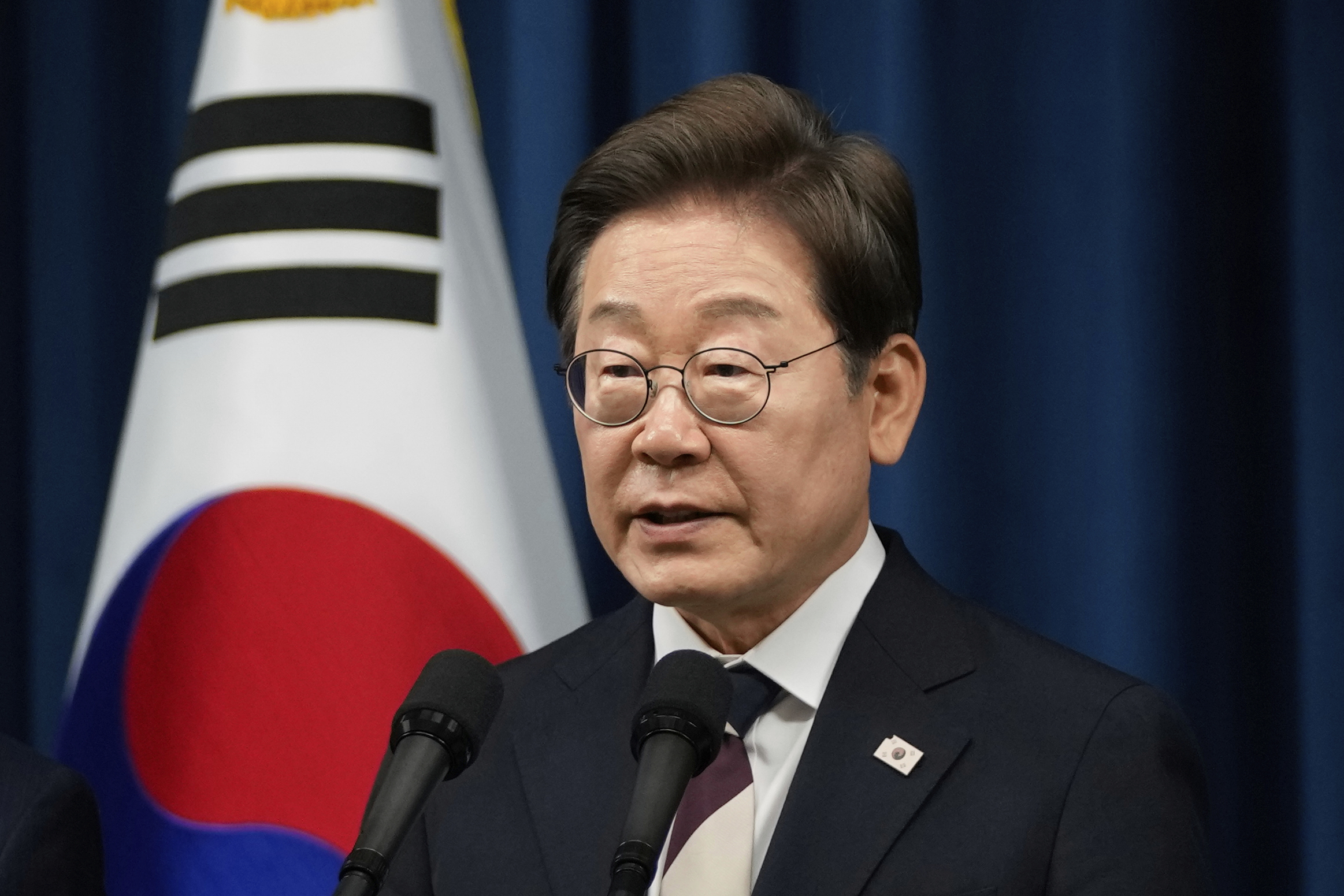New president vows to revitalize economy, ‘revive’ nation amid US tariffs, domestic challenges

President Xi Jinping extended congratulations to Lee Jae-myung on his election as president of the Republic of Korea, expressing Beijing’s readiness to work with Seoul to uphold good-neighborliness and friendship, and to stick to the goal of mutual benefit and win-win results.
Calling the two countries important close neighbors and partners for cooperation, Xi said in his congratulatory message on June 4 that since the establishment of diplomatic relations 33 years ago, the two sides have transcended differences in ideology and social systems, moved forward hand in hand, and achieved mutual success, realizing the stable and healthy development of bilateral relations.
This has not only enhanced the well-being of the people of the two countries but also made positive contributions to promoting regional peace, stability, development, and prosperity, he added.
Xi stressed that he attaches great importance to the development of China-ROK relations.
China would like to work with the ROK to continuously advance the bilateral strategic cooperative partnership to better benefit the two peoples, he said.
Also on June 4, Foreign Ministry spokesman Lin Jian stressed that China-ROK relations are fundamentally propelled by the common interests of the two countries, do not target any third party, and should not be disrupted by any external factor.
He made the remarks at a regular news conference when asked what kind of China policy Beijing expects from Seoul and whether bilateral ties will be improved under the new government.
Lee has repeatedly stated that he would pursue pragmatic diplomacy based on a military alliance with the United States and boost ROK-US-Japan cooperation. He also expressed during his campaign in May a willingness to seek stable ties with other countries such as China.
Lin emphasized that China always opposes taking sides and bloc confrontation.
Da Zhigang, a researcher at the Heilongjiang Provincial Academy of Social Sciences’ Institute of Northeast Asian Studies, stated that it remains an urgent task for the new Seoul government to promote the high-level development of its relationship with China amid a complex geopolitical landscape, and the need to boost the economy.
China is the ROK’s largest trading partner, largest export market, and largest source of imports. Meanwhile, the ROK is China’s third-largest trading partner, with bilateral trade volume standing above $300 billion annually.
Lee, a former human rights and labor lawyer, won the June 3 presidential election with 49.42 percent of the vote, beating the 41.15 percent won by Kim Moon-soo, candidate of the conservative People Power Party, according to Yonhap News Agency.
Since the snap election was held to fill a vacancy in the top office following the impeachment of former president Yoon Suk-yeol over his short-lived martial law decree, Lee began his single five-year term at 6:21 am on June 4 after the National Election Commission confirmed his victory in the election.
Turnout among the 44.39 million eligible voters reached 79.4 percent in the election, marking the highest in 28 years.
In his inauguration speech on June 4, Lee emphasized national unity and economic revitalization.
Lee aims to put the nation back on track after months of chaos and uncertainty following his predecessor’s ouster over a failed attempt to impose martial law.
“It is time to revive a nation pushed to the brink, restore growth, and create a future where everyone can live happily,” said Lee, in his first address to the nation as the country’s 21st president after taking the oath of office at the National Assembly in Seoul.
Lee said he will become the “president for all”, embracing and serving every citizen regardless of who they supported in the election.
On security, Lee said he will open communication channels with the Democratic People’s Republic of Korea, aimed at fostering peace on the Korean Peninsula through dialogue and cooperation.
The new leader faces a daunting task due to a deep political divide in the nation and challenges on multiple other fronts, including diplomacy and trade, ROK experts said.
Though Lee mentioned “unity” multiple times in his speech, his election victory will not mean the end of the political divide in the ROK, said Hong Sung-gul, a professor at the School of Public Administration and Public Policy of Kookmin University in Seoul.
“There will be fierce competition between the ruling and opposition parties,” Hong told China Daily.
As the ROK also faces challenges in tariff talks with the United States, Hong said it will not be easy for the new government to change the situation, as the US administration has not shown any willingness to change its original stance.
The fact Lee still faces legal charges will be an Achilles’ heel for the president that the conservative party will focus on, Bong Youngshik, a visiting professor at Yonsei University in Seoul, said.
According to the Constitution of the ROK, a sitting president is immune from criminal prosecutions except for charges of insurrection or treason. But whether that applies to a trial that begins before a president is elected has sparked debate within the country.
Contact the writers at kelly@chinadailyapac.com


